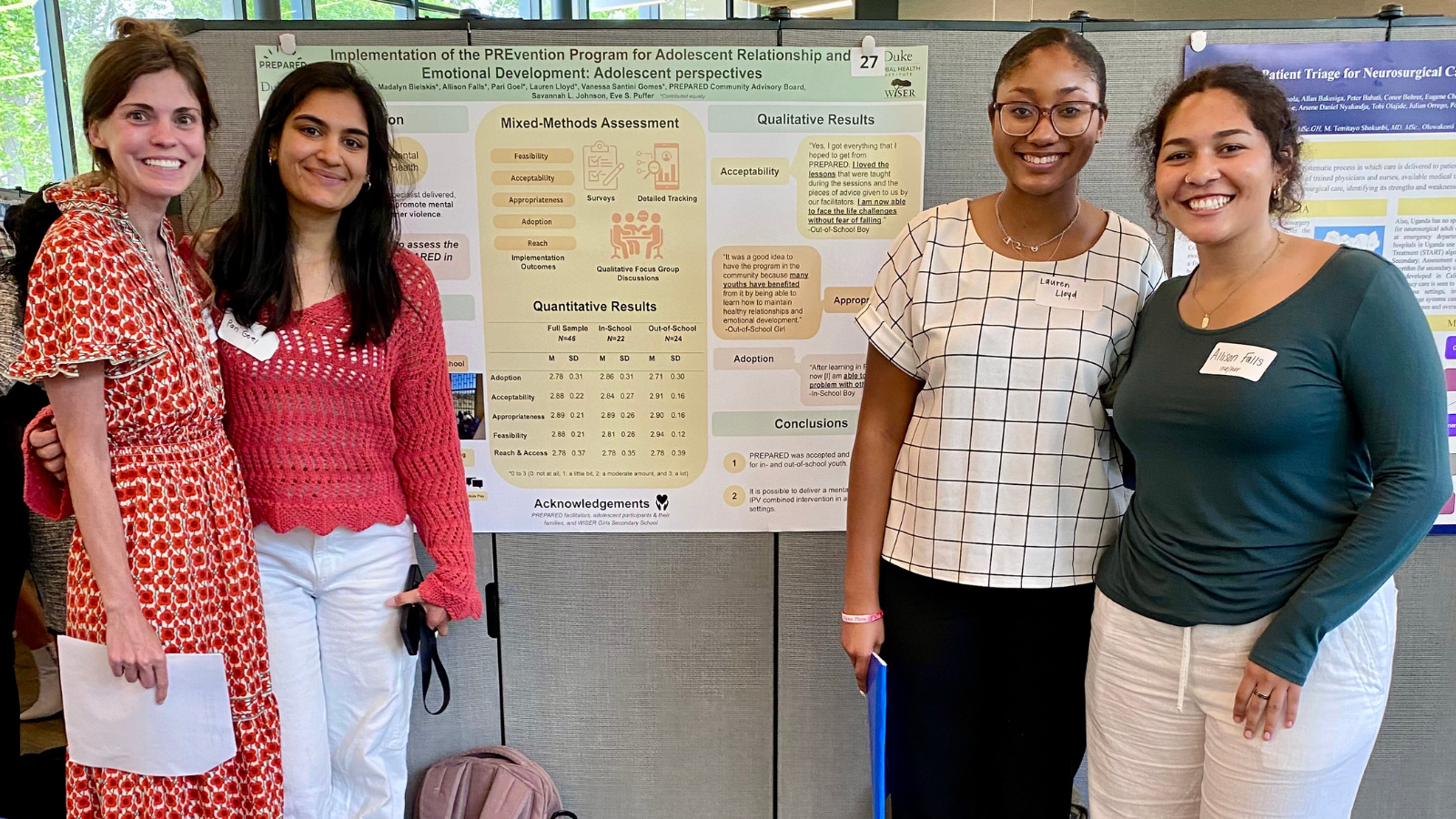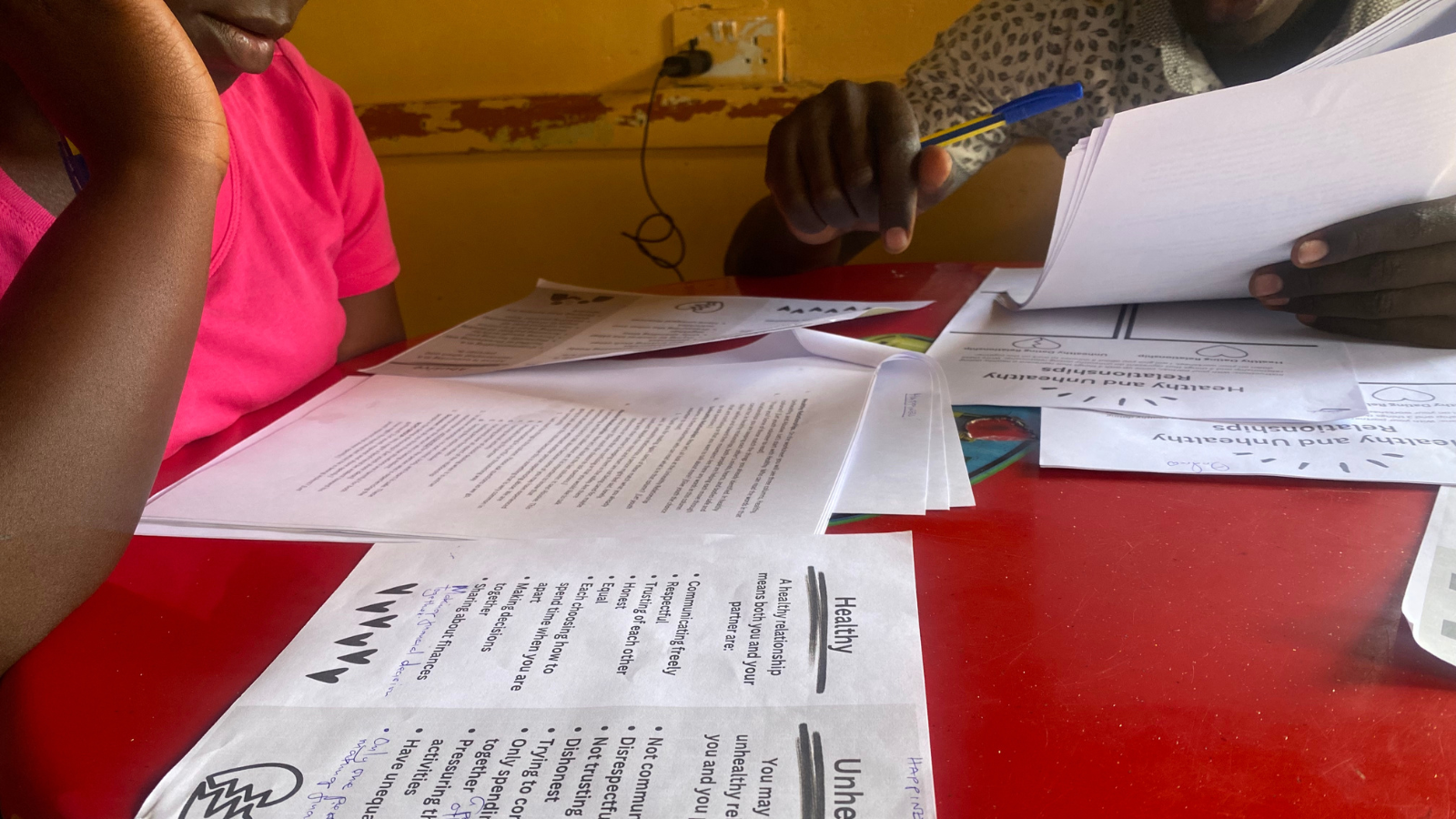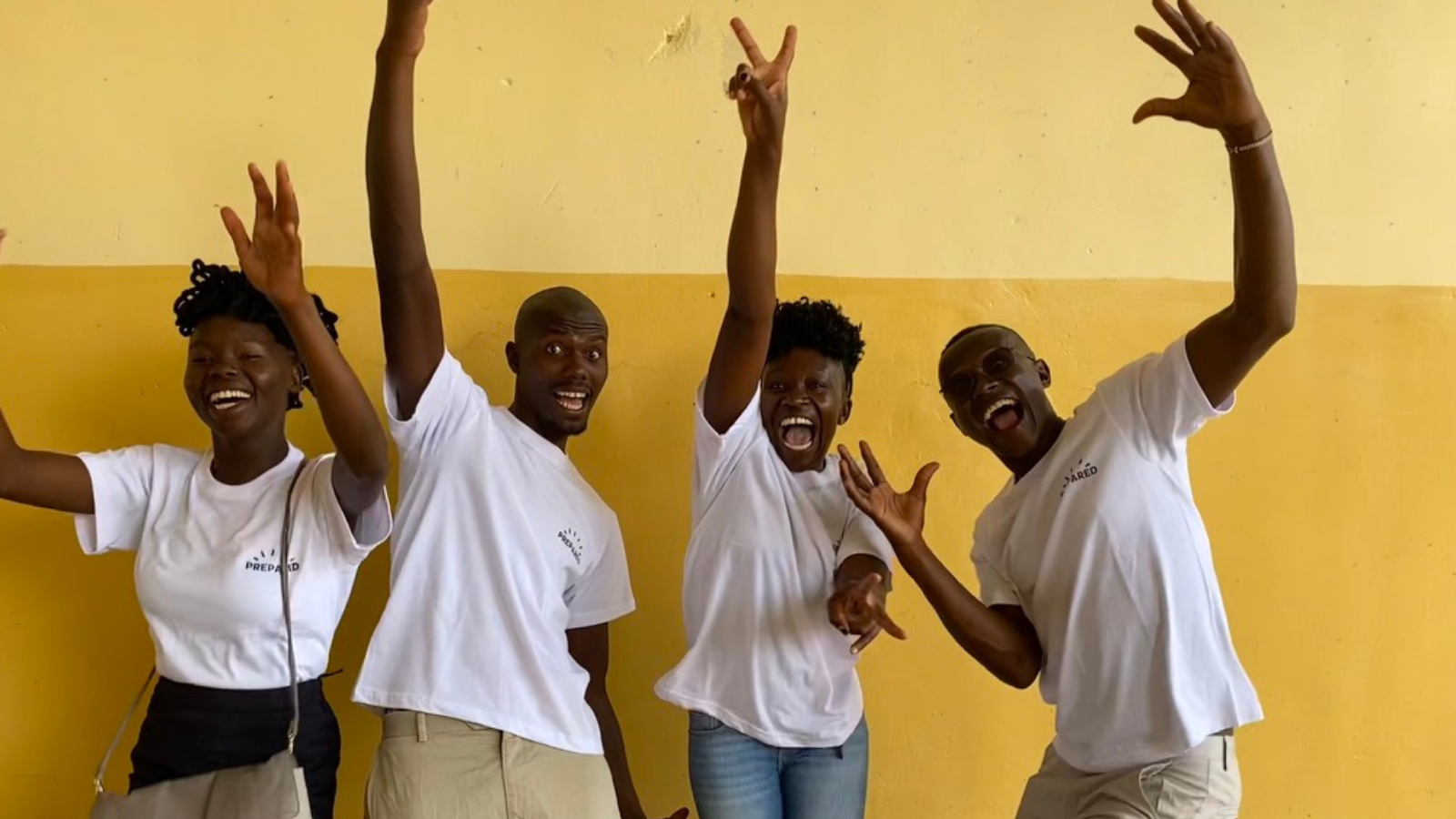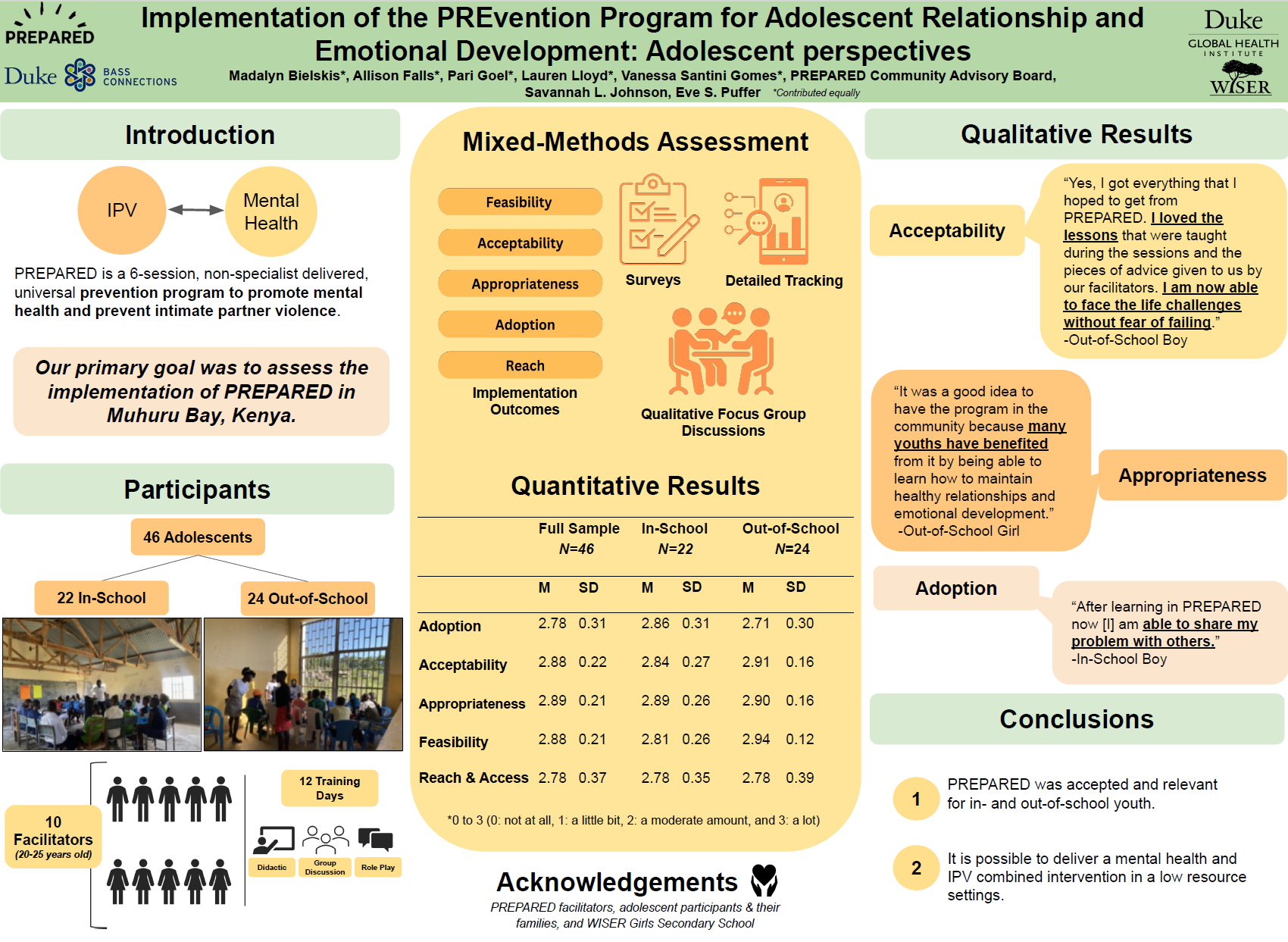Adolescent Mental Health and Intimate Partner Violence in Kenya
Project Team

Team profile by Savannah Johnson, Madalyn Bielskis, Lauren Llyod, Allison Falls, Vanessa Santini Gomes and Eve Puffer
Mental health problems and intimate partner violence (IPV) are two interrelated challenges that often emerge during adolescence. There are few interventions that aim to address both challenges and their complex interplay.
Our Bass Connections team worked alongside community partners in Muhuru Bay, Kenya to pilot the PREvention Program for Adolescent Emotional and Relationship Development (PREPARED). PREPARED was developed through community-based participatory research alongside local community stakeholders. It is a six-session intervention created to engage both adolescent boys and girls ages 14-17 in content to promote mental health and prevent IPV. Content includes group discussions, skits, role plays, activities and worksheets, and the program is designed for non-specialist delivery (i.e., to be delivered by local community members with no previous mental health or violence prevention experience).
Over the summer of 2023, team members Savannah Johnson, Madalyn Bielskis and Lauren Lloyd joined the study community working alongside Kenyan research staff and community advisory board members on the intervention pilot. Ten “near-peer,” non-specialist facilitators, who were from the local community and shared some social characteristics with adolescent participants, were selected to deliver the intervention. Ten facilitators were chosen, five young men and five young women.
A six-day training was held and completed by Duke team members and local research team members. After the training, adolescents were recruited to participate in the mixed-methods pilot evaluation. Two implementation settings were tested including a school-based model (for adolescents enrolled in school) and a community-based model (for adolescents facing barriers to secondary school).

In total, 46 adolescents participated in the study, 22 in the school-based model and 24 in the community-based model. Adolescents completed pre- and post-intervention surveys and qualitative focus group discussions to assess the implementation of the intervention as well as preliminary indicators of change to mental health and relationship outcomes. Intervention facilitators also completed surveys and a qualitative focus group discussion to share their perspectives on the intervention implementations.
Over the 2023-2024 academic year, our team analyzed the mixed-methods evaluation outcomes. Our larger team included subteams that were each focused on organizing, analyzing and interpreting data from specific areas of the evaluation as well as engaging in related existing literature.
One subteam focused on assessing our community engagement and equitable partnership with the local research team and community advisory board; another subteam focused on intervention implementation outcomes; and the final subteam team focused on intervention-related changes among the adolescents.

Overall, our results across domains were promising. The community advisory board reflected positive perspectives on their engagement with each phase of the project. Implementation outcomes supported the successful implementation of PREPARED in both the school-based and community-based settings. Our pre-post survey results indicated positive changes to adolescent mental health and some relationship-related behaviors. There was no immediate change to IPV victimization and perpetration, but we hypothesize these changes may be better assessed at longer-term follow-up.
Our proof-of-concept study provides the foundation for future larger studies to test PREPARED’s efficacy and effectiveness in larger samples. It also supports the potential for mental health and violence prevention combined interventions in low-health resource settings.
Implementation of the PREvention Program for Adolescent Relationship and Emotional Development: Adolescent Perspectives
Poster by Madalyn Bielskis, Allison Falls, Pari Goel, Lauren Lloyd, Vanessa Santini Gomes, PREPARED Community Advisory Board, Savannah L. Johnson and Eve S. Puffer

